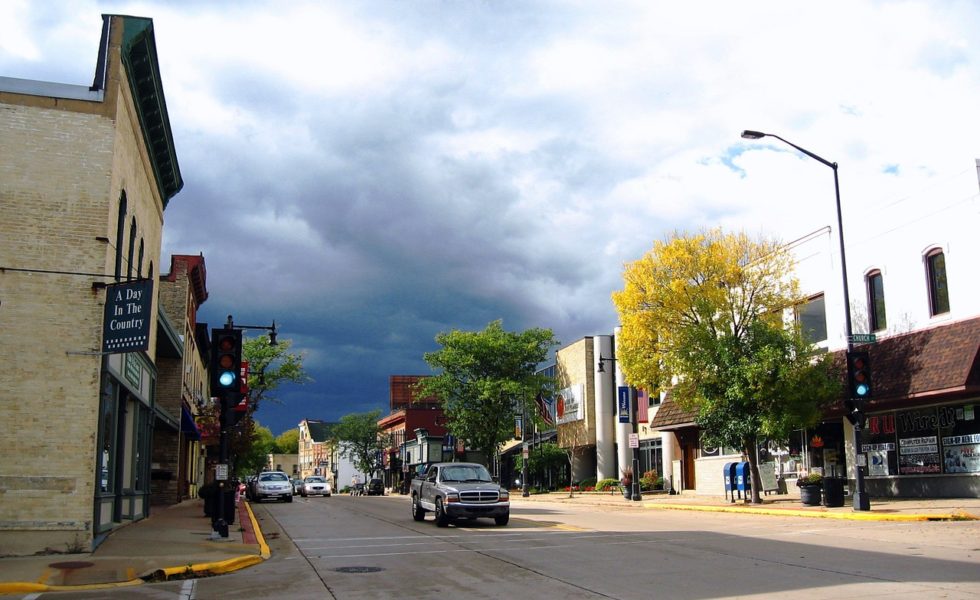Unlocking the Rural Economy Requires Different Keys
Posted on April 10, 2019

Of all the places you’d expect to see a fight between the cold, hard face of ag economics and the warm, tender heart of rural America, that place would not be the corner of West 41st St. and Eighth Avenue in New York City, the home of the New York Times.
And yet there it was in late March, two of the nation’s column-writing heavyweights slugging it out—as much as verb-slingers slug at all—on the world’s most prestigious opinion page.
Nobel Prize-winning economist Paul Krugman threw the first punch with a March 18 column titled “Getting Real About Rural America.” In it, he noted that rural America’s deepening economic woe is, “in some cases,” the result of “powerful forces… that nobody knows how to reverse…”
Krugman is being kind. He knows these powerful forces—like trade-centered Farm Bills, corporately integrated meat production, the unchallenged growth of the Farm Credit System—drive today’s rural economy.
Without change, however, he sees continuing rural woe because, “We can’t help rural America without understanding that the role it used to play in our nation is being undermined by powerful economic forces that nobody knows how to stop.”
In fact, most ag leaders have little interest in stopping any of these “forces” even if they could. The reason is as old as they are: When commodity prices are good, Big Ag wins big; when commodity prices are poor, Big Ag still wins, just not as big.
Twitter exploded in rage over Krugman’s analysis; he was called every barnyard name there is and was urged, impolitely, not to fret (or write) about the future of rural America again.
Three days later, another Times’ columnist, David Brooks, wrote a rebuttal to Krugman’s dark portrait. Its premise was in its warm title, “What Rural America Has to Teach Us.”
“Everybody says rural America is collapsing,” began Brooks. “But I keep going to places with more moral coherence and social commitment than we have in booming urban areas. These visits prompt the same question: How can we spread the civic mind-set they have in abundance?”
Brooks cited several examples of this “mind-set” he encountered during a recent visit to McCook and Grand Island, NE, where “nearly everyone is working at something,” “people leave their homes and cars unlocked,” and “crime is low.”
The rosy portrait fueled Twitter acclaim for Brooks and, unlike Krugman, he’s welcome to come back and write about rural America anytime.
Overall, however, Times readers’ reactions were just the opposite. Of the 1,867 written comments the newspaper received on Krugman’s column, most offered personal facts to confirm his view that rural America is now a tough place to find jobs, health care, education, and, in the end, any kind of a prosperous future.
Surprisingly, many of Brooks’ 1,473 commenters cited the same hard facts in their responses. Hundreds of city-dwelling rural refugees noted that Brooks was right about rural neighborliness and civic engagement. But, they added, he never mentioned that rural America is pockmarked with dissolving or merging school districts, shrinking medical choices and closing hospitals, few high-paying jobs, and an opioid epidemic.
More fascinating to me, both a rural dweller and New York Times subscriber, is that while rural America was debating the two New York Times’ opinion pieces, the Trump Administration was pushing deep budget cuts to almost every federal program that rural America has grown increasingly dependent upon—like food aid, Medicare, Medicaid, and crop insurance.
Indeed, on March 11, the White House proposed to slash the U.S. Department of Agriculture’s (USDA) 2020 budget by 15 percent. Various farm policy leaders allied to the White House immediately dismissed the proposal. Don’t worry, they explained, the White House isn’t serious.
Not serious? Why then waste taxpayer money writing, printing, and distributing what is, essentially, a joke?
The most logical answer is that it’s not a joke; the budget proposal is a clear indication what the White House would do to rural programs if it had the Constitutional authority to do so.
That overreach should worry rural Americans a great deal more than whether or not we leave our homes and cars unlocked.
© 2019 ag comm
Share This